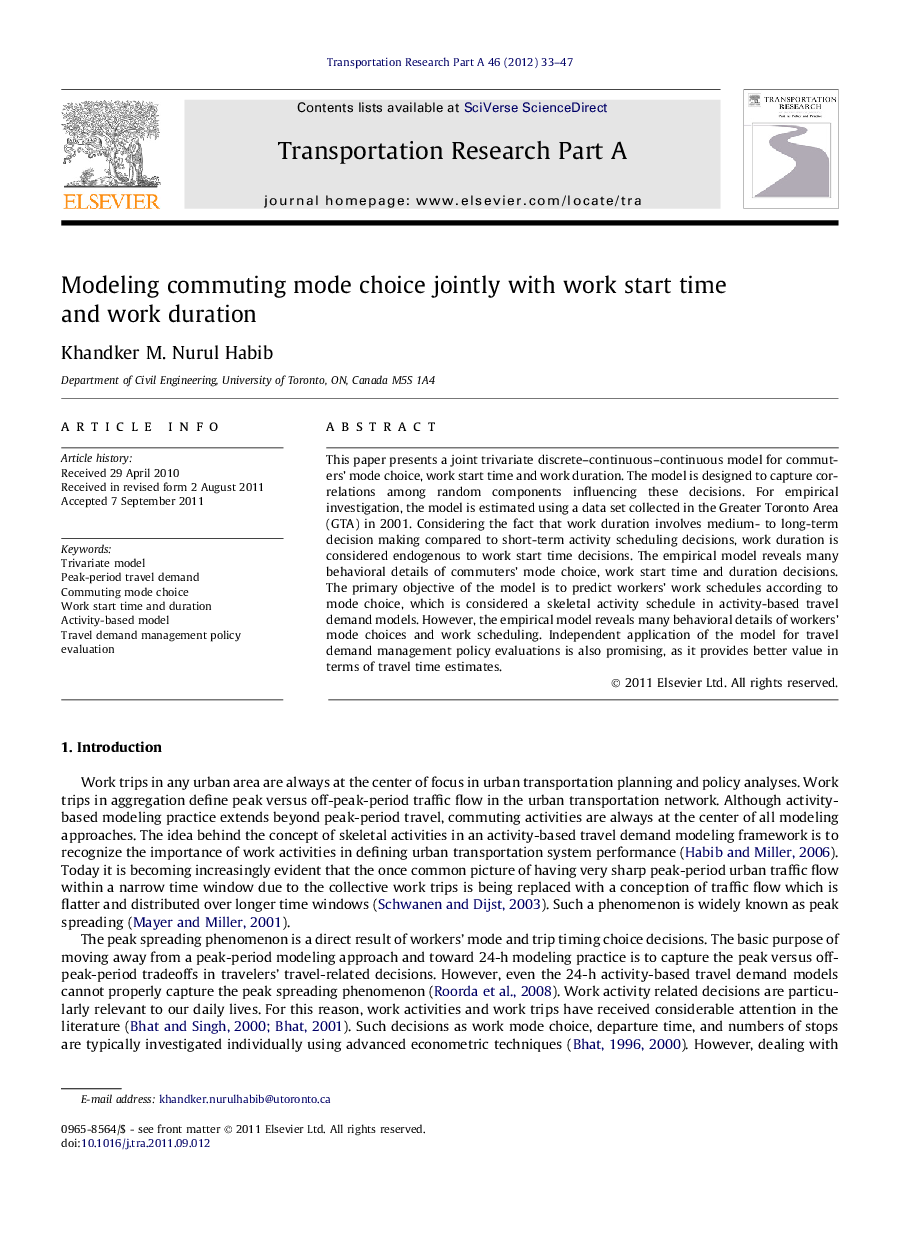| Article ID | Journal | Published Year | Pages | File Type |
|---|---|---|---|---|
| 310467 | Transportation Research Part A: Policy and Practice | 2012 | 15 Pages |
This paper presents a joint trivariate discrete–continuous–continuous model for commuters’ mode choice, work start time and work duration. The model is designed to capture correlations among random components influencing these decisions. For empirical investigation, the model is estimated using a data set collected in the Greater Toronto Area (GTA) in 2001. Considering the fact that work duration involves medium- to long-term decision making compared to short-term activity scheduling decisions, work duration is considered endogenous to work start time decisions. The empirical model reveals many behavioral details of commuters’ mode choice, work start time and duration decisions. The primary objective of the model is to predict workers’ work schedules according to mode choice, which is considered a skeletal activity schedule in activity-based travel demand models. However, the empirical model reveals many behavioral details of workers’ mode choices and work scheduling. Independent application of the model for travel demand management policy evaluations is also promising, as it provides better value in terms of travel time estimates.
► Joint econometric model of discrete–continuous–continuous decision. ► Joint model of mode, departure time and work duration. ► Activity-based dynamic model for travel behavior analyses. ► Improved value of travel time savings estimation.
